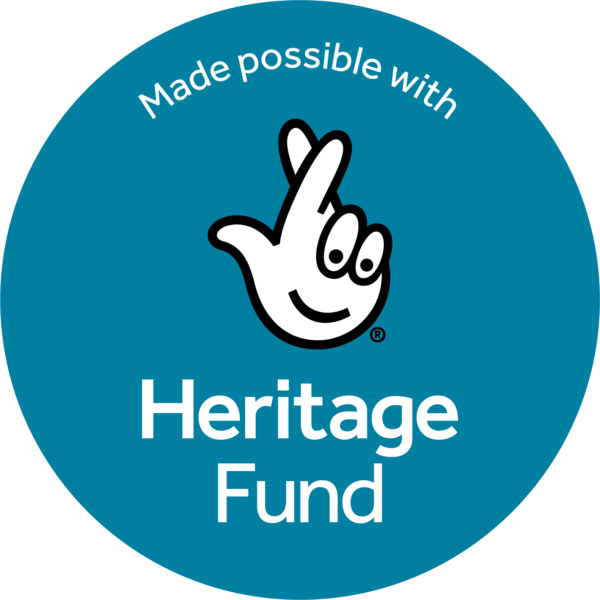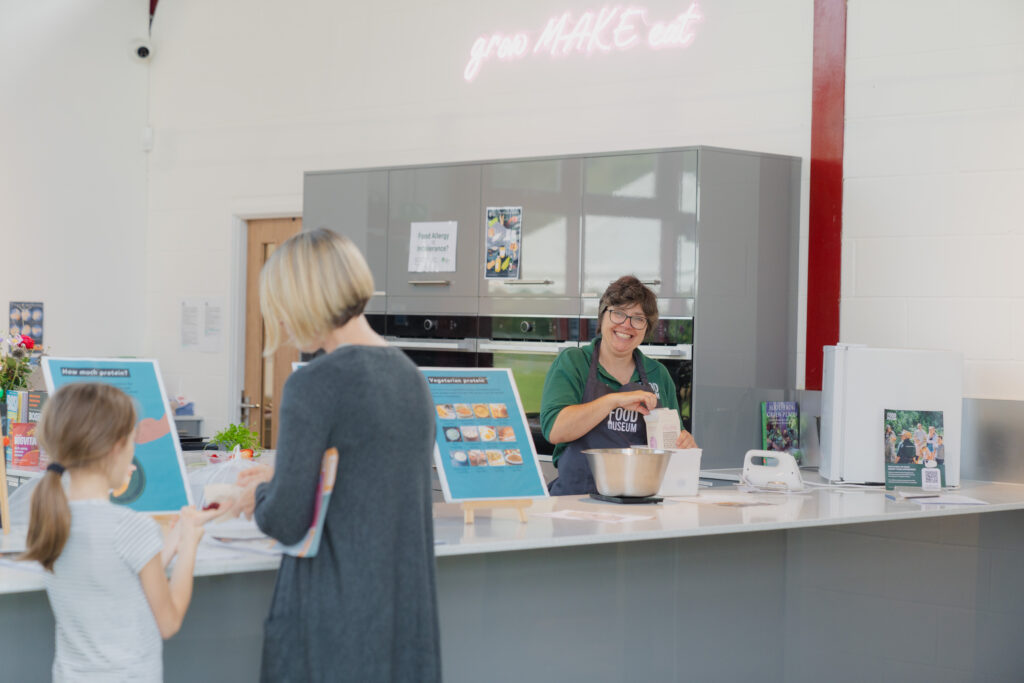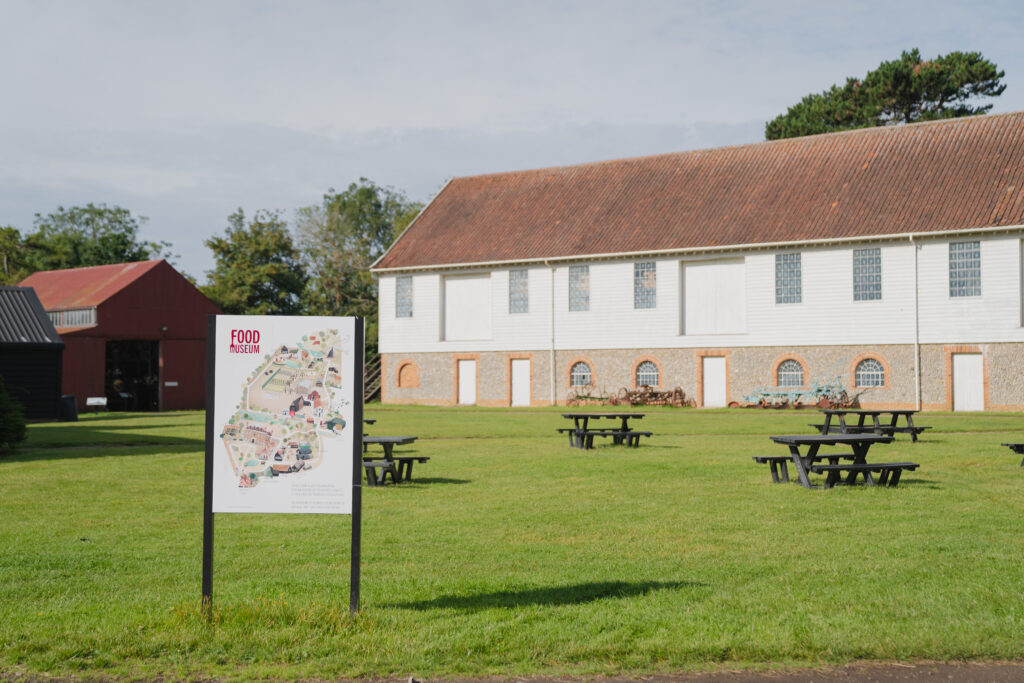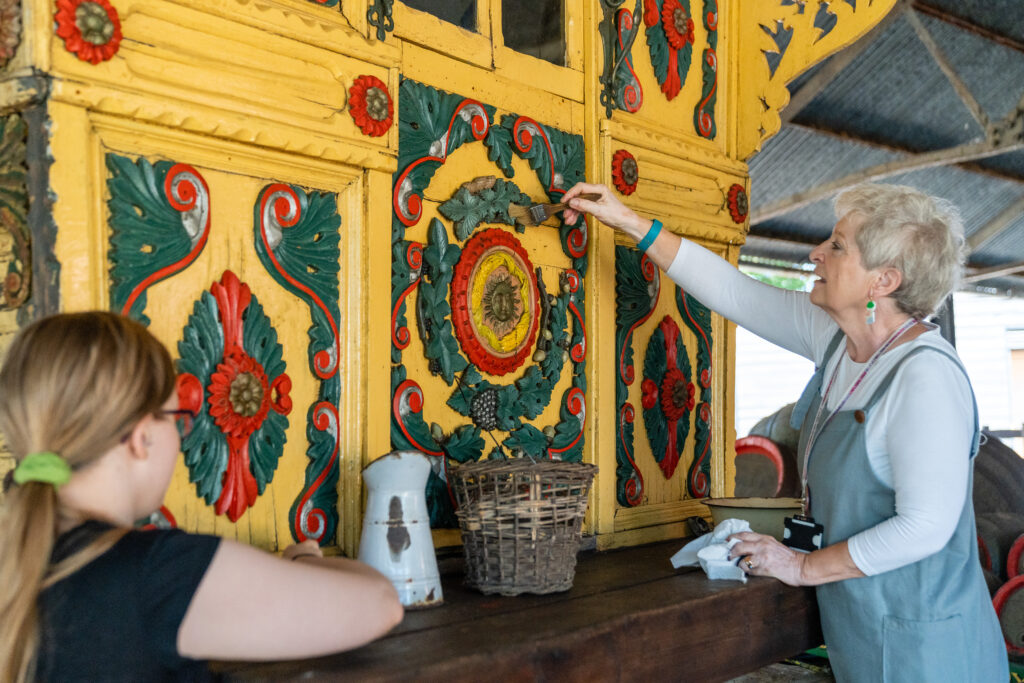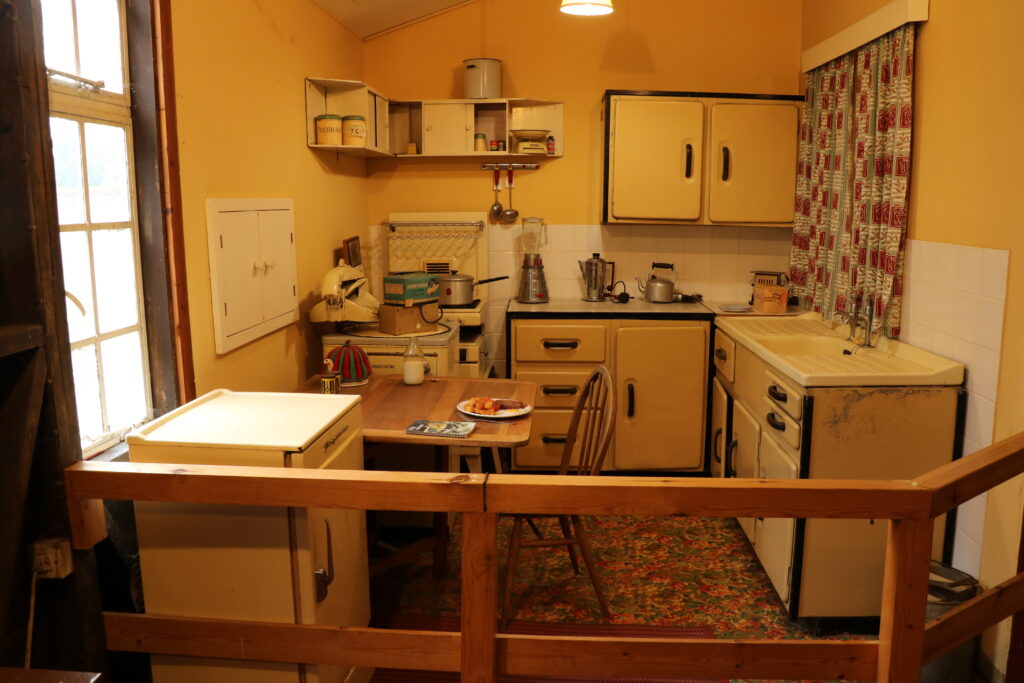The Kitchen Project: 2023-2030
The Kitchen Project is the next step in the multi-million pound redevelopment of the museum’s 84-acre site. The project will deliver a series of exciting and engaging programmes of activities and exhibitions, including creating new opportunities for partnerships and volunteering.
Capital works
The project will transform the presentation of a group of buildings at the centre of the museum’s large 84-acre site. This will include:
- Re-displaying a historic Victorian factory space, the ‘Robert Boby Building’. This structure was part of a 19th-century factory complex, relocated to the museum from Bury St Edmunds in the 1980s when the factory site was redeveloped. This versatile and attractive space will house a permanent display of historic kitchens and machines, brought to life through demonstrations.
- Re-erecting the medieval timber-framed ‘Edgar’s Farmhouse’, a spectacular 14th-century aisled hall. Hidden in its current location, it will be moved into a more appropriate setting at the heart of the museum site and given a garden and outdoor cooking space to interpret medieval food.
- Re-locating two Second World War huts which were brought to the museum in the 1970s to hold exhibits, and are understood to have come from the US airfield at Mendlesham. We will restore them and use them to interpret the wartime food story. We will equip them to enable residential volunteering at the museum inspired by the Women’s Land Army.
- Carrying out improvement and conservation works to the Grade II* Medieval Barn. We will restore the 14th-century barn to highlight its stunning features and bring it into year-round use.
Over the next 18 months, the museum will appoint an architectural team and develop plans.
Activities
A series of exhibitions, events and activities will be delivered each year in partnership with others.
Over the next year, the museum will be developing a ‘School Dinners’ exhibition and activity programme to open in spring 2025. Our partners include the Museum of the Home in East London and the Quadram Institute in Norwich. There will be opportunities for schools and for 16-18 year-olds to get involved, via a Young Curators scheme which will be launched in spring.
Other themes in development include:
- Food Writing – We will work with food writers and chefs to capture the burgeoning interest in writing about food. We will look back at historical works and at today’s food writers who are exploring how food shapes and reflects who we are.
- Food in Wartime – ‘The land army fights in the fields. It is in the fields of Britain that the most critical battle of the present war may well be fought and won’, according to Lady Denman, Director of the Women’s Land Army (and also the first president of the Women’s Institute). This programme will explore the critical contribution of women to farming at a pivotal point in its evolution and present the testimony left by former members of the Women’s Land Army.
- Bringing in the Harvest – Who were and are the communities who grow our food? This programme will focus on harvest-time and who was and is involved in getting our food from the fields. The museum holds an important collection of GRT (Gypsy, Romany, Traveller) vehicles and objects. Historically GRT families played a key role in the farm labour pool. They moved from farm to farm as each crop needed harvesting seasonally. We intend that the permanent reinterpretation and redisplay of the GRT collection will be a key legacy of this programme.
- Eating the Empire – The connections between the UK and its Empire are myriad with far-reaching legacies and impacts. We intend to work with diaspora communities to look at the subject of Britain’s imperial past focusing on different cultures, foodstuffs, industries and topics.
If you are interested in partnering with the museum or getting involved with our work, please email contact@foodmuseum.org.uk
The project is supported by the National Lottery Heritage Fund and Suffolk County Council.
